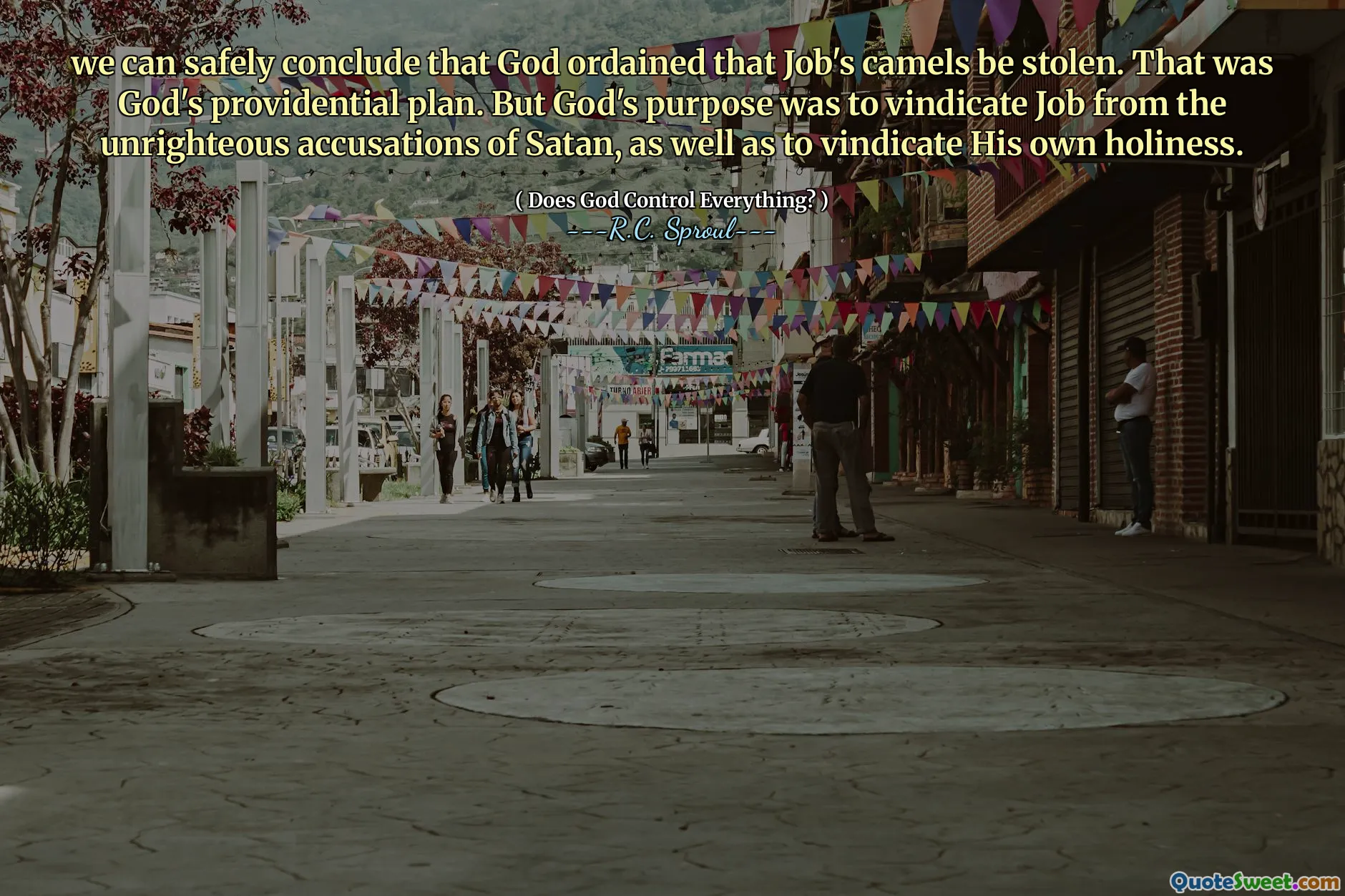
we can safely conclude that God ordained that Job's camels be stolen. That was God's providential plan. But God's purpose was to vindicate Job from the unrighteous accusations of Satan, as well as to vindicate His own holiness.
This quote invites deep reflection on the intricate relationship between divine sovereignty and human suffering, especially through the lens of the biblical story of Job. The assertion that God ordained the theft of Job’s camels suggests a providential framework where events that appear tragic or unjust operate under a divine plan with a higher purpose. Often, in modern discourse, suffering and loss are seen only as misfortunes or random occurrences devoid of meaning. However, this viewpoint challenges us to consider that even adverse circumstances could be instruments in revealing greater truths about God and humanity.
The quote emphasizes two significant purposes behind Job’s immense suffering: first, to vindicate Job from false charges, specifically those of Satan, and second, to uphold God’s own holiness. This highlights a profound theological notion that trials may serve not only as tests but also as public demonstrations of righteousness and divine justice. It reframes suffering as part of a cosmic narrative wherein God’s moral governance and the integrity of individuals are tested and displayed.
Reflecting on this, one may find comfort and challenge simultaneously. Comfort, because it implies that life’s hardships are not without meaning; challenge, because it calls for faith in unseen purposes and trust in divine wisdom when faced with adversity. The acknowledgment of God's active role in what unfolds invites believers to look beyond surface events to the spiritual realities and goals that may be at work.
Furthermore, this quote touches upon the theme of vindication—not just of the individual but God's character. It reminds us that in a fallen world filled with injustice and accusations, the divine plan works towards establishing ultimate truth and holiness, even if the path involves suffering. Such an understanding encourages resilience and steadfastness, teaching that integrity and faithfulness matter amidst trials.
In essence, the quote from R.C. Sproul's "Does God Control Everything?" succinctly encapsulates a theological perspective that sees God's providence as sovereign over all events. It invites believers to trust in God’s overarching plan, that even instances of loss and pain have a place in revealing divine truth and glory.






